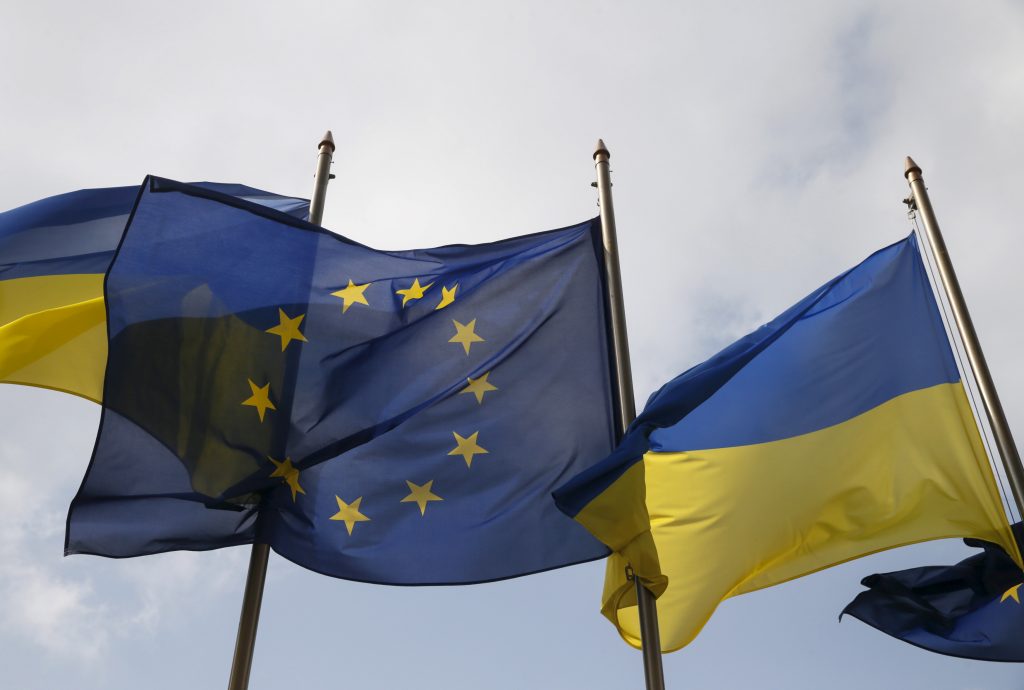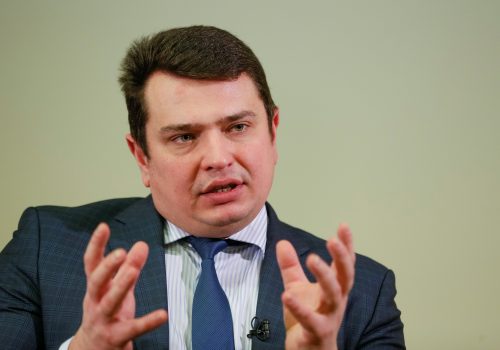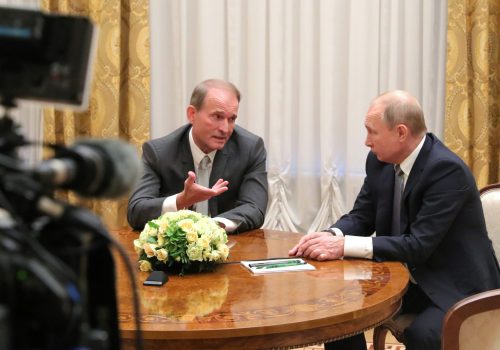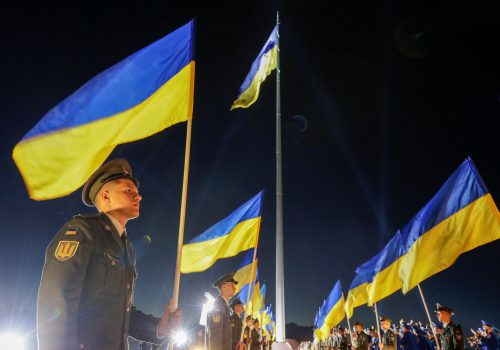President Zelenskyy heads to Brussels next week for the twenty-second annual EU-Ukraine Summit with bilateral ties at their most strained since the signing of a landmark Association Agreement in 2014. The relationship between Ukraine and the European Union has become significantly stronger during the past six years, but backsliding by the Zelenskyy government in Kyiv on key anti-corruption measures is now sparking concern among Ukraine’s European partners over the country’s future direction.
Increasing EU-Ukraine tensions were bubbling just below the surface during EU High Representative for Foreign Affairs and Security Policy Josep Borrell’s first trip to the Ukrainian capital on September 22. In a subsequent blog post reflecting on his visit, Borrell underlined the strategic importance of bilateral ties but also stressed that Ukraine should not take EU support for granted. “Since 2014, the EU has been the strongest partner of Ukraine. Our support will continue but is also linked to the urgent need to enhance the rule of law and develop the fight against corruption,” he wrote.
Stay updated
As the world watches the Russian invasion of Ukraine unfold, UkraineAlert delivers the best Atlantic Council expert insight and analysis on Ukraine twice a week directly to your inbox.
Borrell’s comments were prompted by a series of alarming recent court rulings and parliamentary votes that have undermined international confidence in Ukraine’s commitment to the reformist path embarked upon following the country’s 2014 Euromaidan Revolution.
Over the past six years, much of the international support Ukraine has received has been tied to the implementation of reforms, including the creation of anti-corruption institutions capable of operating independently. This process has been subject to endless delays and repeated disruption. Nevertheless, until recently, it was adjudged to be moving in the right direction.
The situation changed dramatically thanks to rulings handed down by Ukraine’s Constitutional Court in August and September that challenged the legal validity of the country’s National Anti-Corruption Bureau (NABU) and raised the prospect of reversing large parts of the country’s post-2014 anti-corruption legislation. These Constitutional Court decisions were slammed by critics as politically motivated attempts to erode the independence of NABU.
There was further bad news for the reform agenda in the second half of September when Ukrainian MPs appointed a dubious selection commission for the country’s Specialized Anti-Corruption Prosecutor’s Office (SAPO) that fell well short of Ukraine’s international commitments. Prior to the September 17 vote, Zelenskyy had received repeated reminders from Ukraine’s international partners about the need to establish a credible commission and meet the country’s anti-corruption obligations. Nevertheless, MPs from his Servant of the People party led the vote in parliament.
EU officials responded by reminding Ukraine that this parliamentary decision could jeopardize the country’s latest EUR 1.2 billion macro-financial assistance program. There were also suggestions in some quarters that the move could place Ukraine’s visa-free travel to the European Union in danger.
While both these developments would be painful for Kyiv, the absence of additional incentives highlights the relative lack of leverage Brussels currently enjoys in its relations with Kyiv. With the most extensive Association Agreement in EU history already in place but no realistic prospect of a road map towards full membership, Brussels is limited in terms of what it can now offer Ukraine. In other words, the EU has no carrots and very few sticks.
Eurasia Center events

This was not the case during the early years of the Association Agreement from 2014 to 2017.
Initial plans to conclude the Association Agreement in November 2013 were thrown into disarray when Ukrainian President Viktor Yanukovych pulled out on the eve of the official signing following intense Russian pressure. This led to street protests in Kyiv which escalated into a revolution before culminating in a massacre of protesters in the heart of the Ukrainian capital. At the time, it was widely noted that the victims were the first people to lose their lives while struggling for EU integration.
The drama and tragedy of the Euromaidan Revolution meant that when Ukraine’s new post-revolutionary government finally proceeded with the Association Agreement, it was imbued with a symbolic meaning that far outstripped its bureaucratic content.
The terms of the agreement brought numerous concrete benefits including greatly expanded free trade opportunities that have since allowed Ukraine to emerge as one of the EU’s top food providers. For most Ukrainians, however, the real prize was the promise of being able to travel throughout the EU’s Schengen Area without requiring a visa.
For more than a quarter of a century following independence, visa regulations had served to restrict the ability of Ukrainians to travel conveniently. While acquiring visas was not necessarily a problem, the process often involved considerable paperwork and demeaning procedures. Psychologically, it left many Ukrainians feeling relegated to second class status.
Visa-free travel removed these obstacles overnight and led to an unprecedented surge in Ukrainian travel throughout the EU. Following the dawn of visa-free travel in June 2017, new airlines queued up to enter the Ukrainian market as Ukrainians made tens of millions of trips to European destinations.
For the past three years, the EU has not had anything like visa-free travel with which to encourage Ukraine to maintain the momentum of reforms. While the loss of visa-free travel would be politically explosive, many feel the Ukraine-EU relationship needs additional goals in order to move forward.
For Ukraine, the ultimate objective has always been EU membership. However, Brussels has remained reluctant to discuss this possibility in specific terms.
In a recent interview with Slovakia’s Hospodárske Noviny, Ukraine’s President Zelenskyy emphasized his country’s objective of eventually joining the 27-nation bloc. “We want to get a clear membership perspective for Ukraine from the EU,” he commented. “It is important for Ukrainians that the European Union recognizes and supports our aspirations.”
Statements of this kind are no doubt designed to reassure anyone who questions Zelenskyy’s commitment to maintaining Ukraine’s Euro-Atlantic integration. However, actions speak louder than words, and recent developments in Ukraine have placed the country’s westwards trajectory in serious doubt. This is likely to be the main focus of discussions during next week’s summit in Brussels as Ukraine’s European partners seek reassurances that the historic progress of the past six years is not under threat.
Peter Dickinson is the Editor of the Atlantic Council’s UkraineAlert service.
Further reading
The views expressed in UkraineAlert are solely those of the authors and do not necessarily reflect the views of the Atlantic Council, its staff, or its supporters.

The Eurasia Center’s mission is to enhance transatlantic cooperation in promoting stability, democratic values and prosperity in Eurasia, from Eastern Europe and Turkey in the West to the Caucasus, Russia and Central Asia in the East.
Follow us on social media
and support our work
Image: The EU and Ukraine flags flying in central Kyiv. (Photo: REUTERS)




